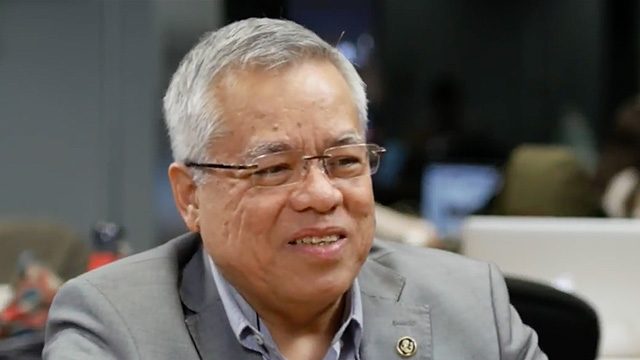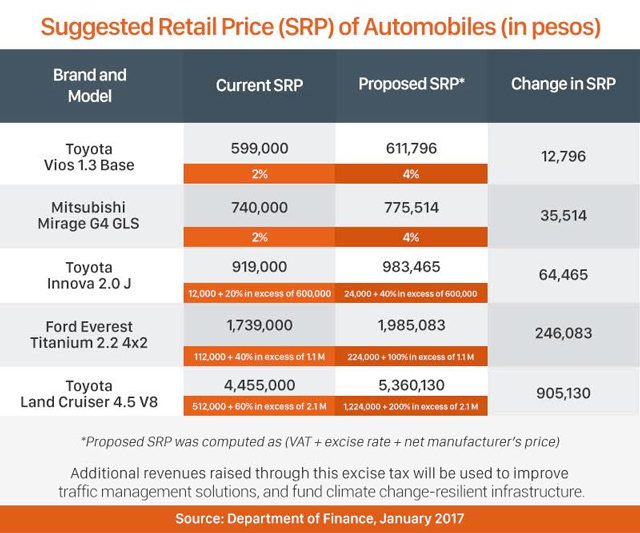SUMMARY
This is AI generated summarization, which may have errors. For context, always refer to the full article.

MANILA, Philippines – Despite all the headlines about extrajudicial killings in the Philippines, foreign direct investments (FDI) last year was up by 40.7% – hitting $7.9 billion – compared to 2015.
What’s more, Trade Secretary Ramon Lopez pointed out, while the bulk of the improvement came in the first half of the year at the twilight of former president Benigno Aquino III’s term, robust FDI also remained from June to December under the President Rodrigo Duterte.
“They’re all applying to enter the Philippine market. The trust is there,” Lopez told Rappler Talk on Wednesday, March 15.
The Duterte administration is battling criticism here and abroad for some controversial policies such as the war on drugs and the drive to reimpose the death penalty – issues that its Western partners have questioned.
Just last week, a Philippine lawmaker reiterated the threat that the European Union could remove the Philippines from its GSP+ recipients following the push to reimpose death penalty.
Lopez downplayed these concerns, noting that the government has been “in discussion with [the US and EU] and we’re simply telling them look just continue to engage with the Philippines.”
Otherwise, he added, “it gives us more reason to talk to other countries that are also eager [to trade].”
He acknowledged, however, that the Department of Trade and Industry (DTI) had to reassure investors following the President’s tough anti-US and EU remarks.
“This pivot to China does not mean that we will forget the west. To understand the President, you have to understand that he wants what’s good for the Filipino people. Investment is good for the Philippines because it creates jobs, so definitely he won’t scare away investors from the US or EU or even China,” he said.
Death penalty is a long shot
Lopez also reiterated the government’s stance that so far, accusations linking the government to extrajudicial killings have not been proven.
“Our appeal to them is please don’t jump to conclusions basing it on some newspaper reports out there. If you want (to do that) you have to conduct your own investigation,” he said.
On the death penalty, Lopez noted that the law has not been passed anyway. “I’m sure there will still be a lot of legal challenges to it and for all we know it could take 10 years before it even comes into effect,” Lopez said.
“It’s so difficult for them [EU] just to remove [the GS+] based on something that isn’t yet happening,” he added.
Good numbers
Despite this, Lopez is happy with what he’s seeing on the trade front. “We’re looking at the numbers and we don’t know where the concern is coming from,” the DTI chief said.
Lopez said the administration has opened new doors in the region’s new giant, China, adding in particular that a $1.7 billion trade purchase agreement had just been signed on the day of his Rappler interview.
“It’s like a purchase order coming from different [Chinese] firms and that’s only because the Chinese market has really opened up to Philippine products and that’s because of the tremendous goodwill generated by President Duterte when he visited China,” he explained.
This goes along with the additional billions of dollars in investments China has pledged to pour into the government’s infrastructure program. (READ: Duterte bringing home $24B worth of deals from China)
That goodwill has boosted tourism, with tourist arrivals up 76.46% or 85,948 people in January this year, based on data from the Department of Tourism, according to Lopez.
The trade chief expressed confidence that this is just the tip of the iceberg. The administration is targeting 1 million Chinese tourist arrivals this year following the recent lifting of a travel advisory against the Philippines by the Chinese government.
This will benefit SMEs, as rentals, restaurants, agricultural products, and souvernis are all SME-oriented, the trade chief added.
“The challenge now is to build more hotel rooms and other infrastructure to accommodate that boom. But the government infra push is pulling that…We’re very bullish on tourism and trade,” Lopez said.
Balancing act
The DTI head pointed out that the county is in a good position to take advantage of the 600-million market in ASEAN. It’s a market that could potentially expand to 3.5 billion with the ongoing Regional Comprehensive Economic Partnership (RCEP) talks that include both China and India.
“When you look the Philippines, about 75% of our exports enjoy Generalized System of Privileges GSP [with the US] while two thirds of our exports to the EU enjoy GSP+, which means that the tariff rates are 0 and therefore locating in the PH will give [investor] easier access for their projects,” Lopez said.
Beyond dealing with negative perceptions, the trade chief will also have to carefully balance maintaining industry competitiveness with improving the livelihood of individual workers.
The government’s centerpiece reform is the comprehensive tax reform, which is being debated in Congress and aims to lower income tax for the majority of the population as well as corporations.
Doing this will lower much-needed government revenue so the reform includes tapping more revenue-generating programs, one of which is raising excise tax on new vehicles.
But the measure is seen by auto manufacturers as potentially hampering the local auto industry.
This is a concern for trade as one of its main incentive programs, CARS, specifically targets the resurgence of the automotive industry in the country.
“We believe and fully support the tax reform program because that is really something that will correct the current structure. Reducing the income tax for both individuals and corporates will yield more net gain [for both] to be brought back either through investment, R&D or innovation,” Lopez said.
Lopez said that while there were initial concerns, the Department of Finance (DOF) has since adjusted auto tax brackets and they are now consistent with the DTI’s CARS program.

Lopez also pointed out that the new rates are progressive in the sense that the majority of the burden now falls on luxury cars which he believes won’t be drastically affected since buyers in that segment are not price sensitive.
“The bottom line is that for cheaper cars and especially for cars that will be produced here, there will be minimal change in the effective tax rate and price rate… many of the higher-end cars are not manufactured here anyway so it’s not creating employment,” he said.
Protecting workers and cost
The DTI has also been working out a scheme that will give workers more security by ending the much maligned ”endo” system while at the same time allowing firms to manage their costs.
“Our priority here is to still to improve the tenure of workers so what we are simply saying is that [the key] is in the business model. Instead of hiring regular in the principal company, hire regular in the contractor instead,” Lopez said.
The new plan involves contractor firms that serve the personnel needs of principal firms hiring regular employees and crucially, making them permanent.
This way, if the contractor ends a contract with a principal firm, it is then the contractor’s responsibility to find another firm to place its workers in.
This is important, Lopez noted, because what usually happens is that workers are let go once a contract ends between a contractor and a principal firm.
The new scheme will also include a grace period of around 3 months before the workers can be let go by contractors, but they will need to be let go with severance packages or retirement benefits.
“That is our stance and has to be in a department order (DO) issued by DOLE. The President simply remanded the DO to be reviewed further to give time for consultations with various stakeholders,” Lopez said. – Rappler.com
Add a comment
How does this make you feel?
There are no comments yet. Add your comment to start the conversation.